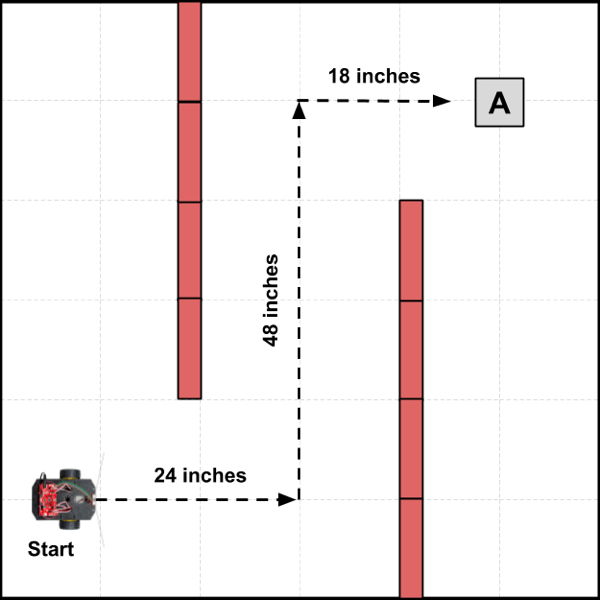Distance Navigation
When using distance navigation, the robot drives straight for a specific distance, and then turns to start driving in a new direction. The robot's path is programmed as an ordered sequence of specific distances and turns.
ADVANTAGE: The robot can be programmed to follow any path needed (i.e., path is not defined by lines or markers).
DISADVANTAGE: The robot's turns may not be perfectly accurate every time. After making several turns, the robot might be off-course from its intended path.
Distance navigation is similar to the directions that a mapping app might give you to drive to a destination (such as "Continue for 5 miles, and then turn right...").
Example Task Scenario
In this task scenario, a hospital lab delivery robot will navigate through the hospital hallways (red rectangles are cardboard boxes representing walls) to an nurse's station in the hallway (labeled as "A"), pick up blood samples (simulated step), and deliver the samples to the hospital lab for analysis (labeled as "Start").
For the purposes of the demonstration, the distances traveled are obviously much shorter than a real hospital environment.

Example Code
Here is a possible way to code a custom function to perform this task scenario: